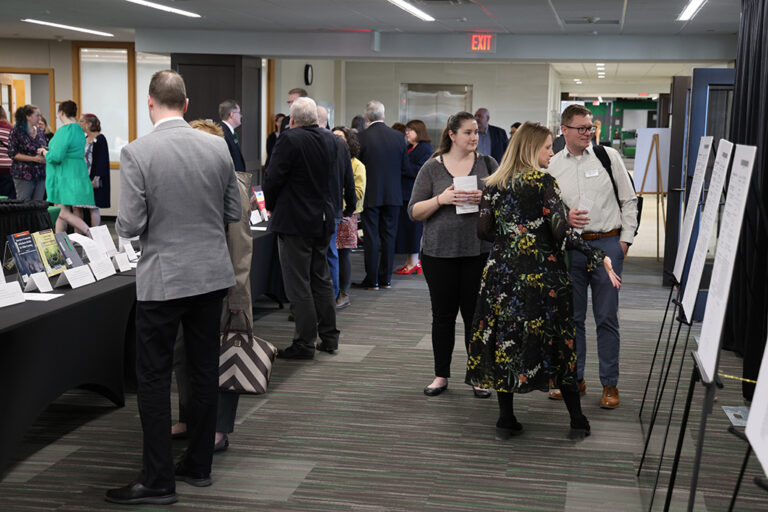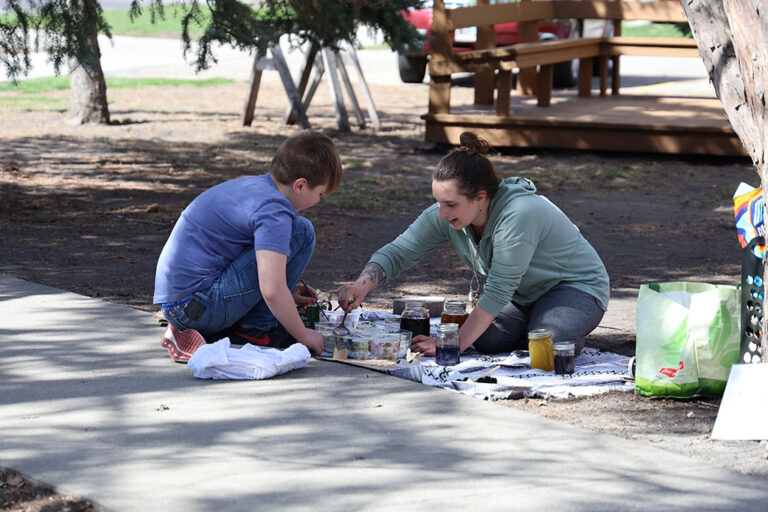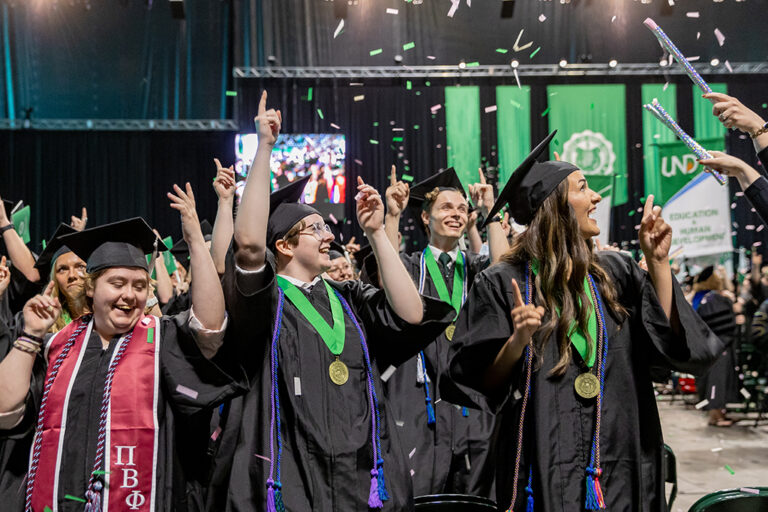Deeper analysis to get it right
UND Deans given more time to work with Executive Council on budget proposals that support the University’s Strategic Plan

Creating opportunity out of hardship takes collaboration and planning. Collaboration and planning takes time.
This week, UND’s colleges were preparing to receive budget reduction targets. Now deans have been given a little more time—and a little more guidance—to prioritize and set their colleges up for success.
“We are taking additional time to ensure that our analysis provides a sound basis for our budget decisions and useful tools for the deans in elevating the potency of how UND delivers opportunity through learning and discovery,” UND President Mark Kennedy said.
Deans were asked to submit their plans for reducing their budgets by 4 percent, 8 percent, and 12 percent by February 3 in anticipation of a potential $23 million shortfall. When these submissions came in, some had incorporated reductions that were one-time cuts—not the permanent cuts necessary for long-term savings.

“Something that was also missing was that it wasn’t clear how what they were proposing was tied to the Strategic Planning process,” said Provost and Vice President for Academic Affairs Thomas DiLorenzo. “We wanted to make sure that some of these suggested changes by the deans fit into that plan.”
Deans will now have another week to rework their budget suggestions with the help of the Executive Council. In addition to more permanent reductions, colleges have been directed to take another look at ways in which they can grow their research opportunities, such as developing and expanding Ph.D. programs and opening up more time for faculty to conduct their own research.
“The Strategic Planning Committee is committed to increasing the quality and quantity of innovation and impactful research to achieve a level of performance consistent with status as a Carnegie R1 university,” said Strategic Planning Committee co-chair and Executive Council member Laurie Betting. “How we focus those efforts to aid the region, nation and world are embedded in the emerging Grand Challenges—addressing challenges in bio-medicine, rural health, energy, unmanned and digital. It’s clear we have the expertise to be a leader in these areas and others. To not harness that intellectual capital would be a loss for our state and beyond.”
More on the Grand Challenges can be found in the upcoming Tuesday edition of UND Today.
Ph.D. importance
Although the deans have been given an additional week to refine their budget plans according to UND’s Strategic Plan, the first step to change is action.
“This plan was never intended to be put on the shelf,” Betting said. “Some of the rationale for the brevity is to allow us to really achieve these outcomes.”
UND’s draft strategic plan calls for a significant increase in research-based Ph.D.s over the next five years. UND Vice President for Research and Economic Development Grant McGimpsey says research universities are known for high levels of research activity, and the primary driver of research productivity is the Ph.D. student.
“An effect of higher Ph.D. numbers will be greater external research funding and increased reputation for the university,” McGimpsey said. “Ph.D. students are supported through a stipend and a tuition waiver and for this reason, colleges need to identify funding sources for this support.”
McGimpsey and DiLorenzo will work with colleges to find ways to devote more tuition waivers to Ph.D. programs that are consistent with UND’s Grand Challenges, and to closely examine graduate programs that are not in demand.
The team will also help deans investigate ways of combining certain disciplines into interdisciplinary approaches.
“That’s what the Grand Challenges are, interdisciplinary approaches to solving society’s problems,” DiLorenzo said. “By making some combinations, it will increase the probability that they’ll be able to graduate more students, more Ph.D.s, and be more competitive for grants.”
Making time for research
Another item that the Executive Council would like the colleges to further examine is low-enrollment courses and low impact programs that are keeping faculty from devoting 30 to 40 percent of their time to research. For example—by eliminating low enrollment elective courses, faculty time would be freed up for additional research.
“One of the things we’re seeing is by offering so many different majors that have relatively few students per major, they fail to achieve the critical mass necessary for collaborative learning and faculty scholarship,” DiLorenzo explained. “One option is to combine some of those programs.”
If UND stops admitting new students in a program, the University would seek to teach out those students currently enrolled in those majors to degree completion. Any subsequent elimination of programs would go through the appropriate approval process.
“In order to achieve our strategic priorities and ensure fairness across campus, we are carefully considering how best to encourage colleges to address low enrollment programs, the wide variability of scholarly activity amongst departments and opportunities to redeploy more faculty time towards research and Ph.D. programs aligned with our proposed Grand Challenges.” President Kennedy said.
Collaboration
Opportunities for collaboration go beyond departments and courses within one college. As a process for campus-wide staff centralization is developed over the next year and beyond, colleges will be encouraged to explore partnerships amongst similar programs offered in more than one college.
One collaboration that has already begun is having groups work together on teaching and professional development. This initiative is especially important in a time of budget cuts so that UND prioritizes the importance of keeping its teaching quality at a high level.
Once budget reduction targets are set, the process of budget refinement within each college will continue through the spring with communication between deans, chairs and faculty.
“It’s difficult every time you’re cutting things. But I really do believe that we’re going to come out stronger, because we’re going to be more focused,” DiLorenzo said. “We’re going to have the Grand Challenges, we’re going to be able to market to our strengths, and we’re going to be able to tell our message better.”
For more budget-related communications, click on the Budget tab of the UND Today homepage.


